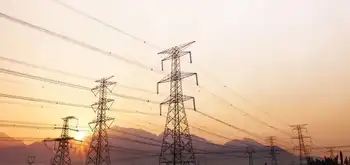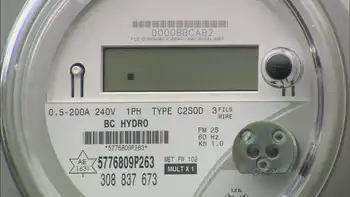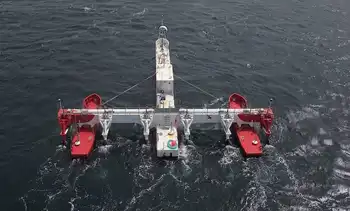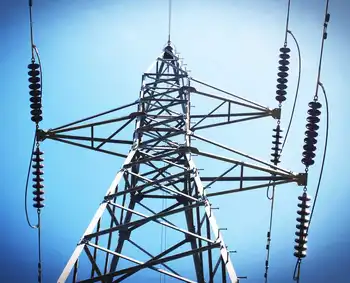Keeping warm should be cheaper this winter
By Associated Press
NFPA 70b Training - Electrical Maintenance
Our customized live online or in‑person group training can be delivered to your staff at your location.

- Live Online
- 12 hours Instructor-led
- Group Training Available
But no matter what fuel is used, heating costs are expected to take less of a bite out of household budgets in the coming months — from $20 to as much as $280 lower than last winter depending on what fuel is used, the government says.
An expected milder winter, along with lower fuel costs, should cut average residential heating expenditures by 8 percent from last year, the Energy Information Administration said in its annual winter outlook.
The nearly 58 million households that use natural gas stand to save about $105 compared with last year, and propane users will get an even bigger break — as much as $280. More modest reductions, $20 to $60, are expected for people who use electricity or fuel oil to heat their homes.
The federal agency, which keeps track of energy statistics and trends, cautioned that its projections are overall averages based on broadly expected weather conditions and fuel supply and cost trends. How much a family actually spends also will depend on local weather, the size and energy efficiency of their home and the efficiency of furnaces and other heating equipment.
But generally the news is good for consumers already hammered by the economic downturn and possibly worried about keeping jobs.
According to the EIA, households are expected to pay an average of $783, nearly 12 percent less than last winter, for natural gas, and $1,821 for heating oil, about 2 percent lower. People using electric heat will pay about $933, a decline of 2 percent, and those using propane $1,667, a 14 percent drop.
Natural gas prices have been on the decline because of a drop in demand caused by the sliding economy and because of hefty supplies. The EIA expects a record high of more than 3.8 trillion cubic feet of gas in storage by the end of this month. The wholesale price of natural gas has been around $3 per thousand cubic feet, roughly half of what it was a year ago.
About half of all households depend on natural gas for heating, especially in the Midwest where seven in 10 homes use the fuel. People in the Midwest also are expected to benefit from a milder winter, compared to last year, and see natural gas bills 15 percent lower than last year, the agency said.
The nearly 8 million households that use heating oil, primarily in the Northeast, can expect to save an average $40 to $60 compared to last winter. The agency said residential heating oil prices in the Northeast are expected to average $2.64 a gallon this winter, just two cents cheaper than last winter but a significant drop from the average $3.31 a gallon of two winters ago.
The biggest savings will be seen by the 6.2 million households that use propane, an average of $280 this winter for a decline of 14 percent. Propane users in the Midwest are expected to save as much as 21 percent compared to last winter because of a combination of lower fuel prices and milder weather, the agency said.
About 39 million, or 35 percent, rely on electricity, especially across the South and in the Pacific Northwest. The EIA said on average these households will save about $20 this winter, compared to last, although costs vary depending on what fuel is used to generate the power. Residential heating with electricity is growing at a rate of 2.5 percent a year, faster than any other major heating source, the report said.
The report covers the winter period from October through March.











